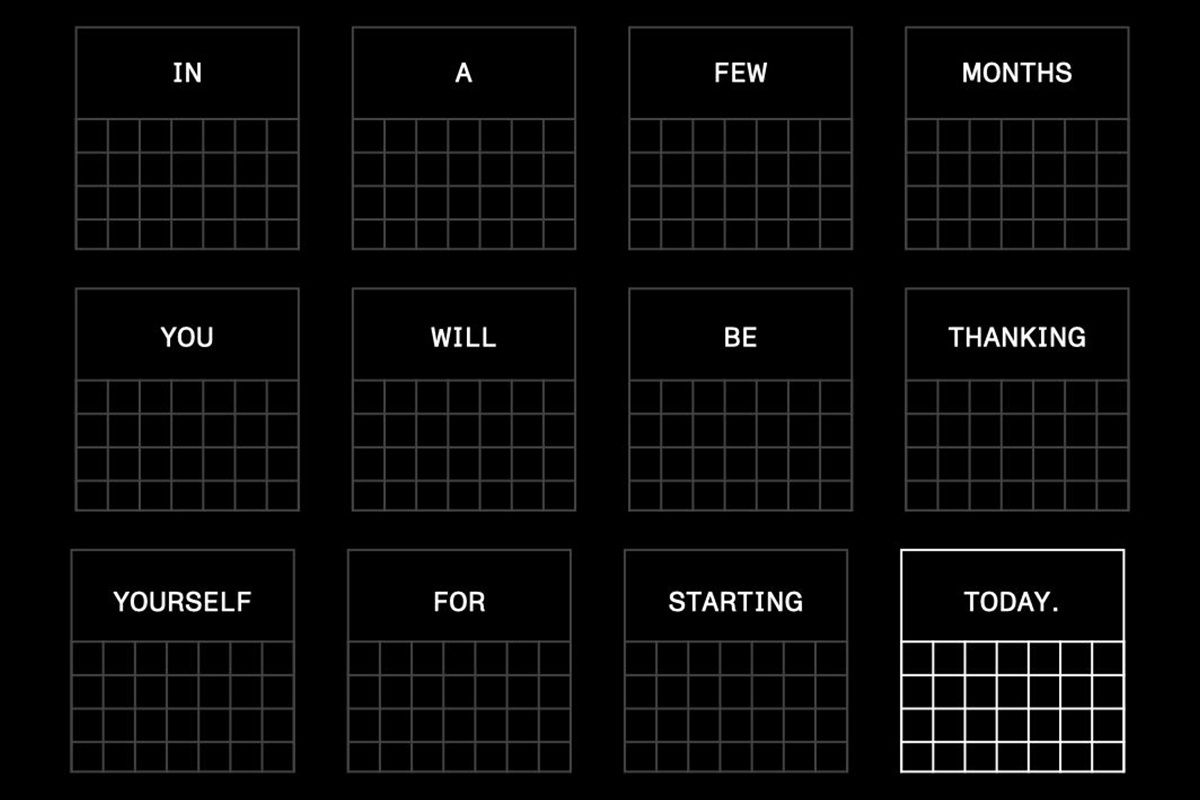Table of contents [Show]
- What is Personal Growth (2024)? Examples
- Introduction to Personal Growth
- The Components of Personal Growth
- The Role of Challenges in Personal Growth
- Developing a Growth Mindset
- Self-Reflection in Personal Growth
- Setting and Achieving Goals
- The Impact of Personal Growth on Relationships
- Physical and Mental Well-being in Personal Growth
- Learning from Failures
- Building a Support System
- Continuous Learning and Skill Development
- Balancing Personal and Professional Growth
- Measuring Personal Growth
- Common Misconceptions about Personal Growth
- Conclusion
- Personal Growth Quotes
- FAQs about Personal Growth
What is Personal Growth (2024)? Examples
Personal growth is an ongoing and intentional process of self-improvement that individuals undertake to enhance various aspects of their lives. It goes beyond achieving career goals and delves into the realms of emotional well-being, relationships, and overall fulfillment. Let's explore the components, challenges, and strategies involved in personal growth.
Introduction to Personal Growth
At its core, personal growth is about the continuous evolution of oneself. It involves recognizing the need for improvement and actively taking steps to enhance one's abilities, perspectives, and overall quality of life. Embracing personal growth empowers individuals to become the best versions of themselves, both personally and professionally.

The Components of Personal Growth
Emotional Intelligence:
Central to personal growth is emotional intelligence – the ability to understand and manage one's emotions and empathize with others. Developing emotional intelligence fosters better self-awareness and interpersonal relationships.
Self-awareness:
Understanding one's strengths, weaknesses, values, and motivations is a crucial aspect of personal growth. It lays the foundation for making informed decisions and navigating life with authenticity.
Goal Setting:
Setting clear and achievable goals provides direction and purpose. Personal growth involves not only establishing these goals but also regularly reassessing and adjusting them as circumstances change.
Continuous Learning:
A commitment to lifelong learning is key to personal growth. This involves acquiring new knowledge, skills, and experiences, contributing to a dynamic and adaptable mindset.
The Role of Challenges in Personal Growth
Overcoming Obstacles:
Challenges are inevitable in life, but personal growth involves viewing them as opportunities for learning and development. Overcoming obstacles builds resilience and fosters a sense of achievement.
Resilience and Adaptability:
Personal growth equips individuals with the resilience to bounce back from setbacks and the adaptability to navigate through life's uncertainties. These qualities are essential for thriving in the face of adversity.
Developing a Growth Mindset
Fixed vs. Growth Mindset:
The concept of a growth mindset, popularized by psychologist Carol Dweck, emphasizes the belief that abilities and intelligence can be developed through dedication and hard work. Embracing a growth mindset facilitates a positive outlook on challenges.
Cultivating a Positive Attitude:
A positive attitude is a driving force behind personal growth. It involves focusing on solutions rather than problems, fostering optimism, and maintaining a proactive approach to life.
Self-Reflection in Personal Growth
Importance of Introspection:
Self-reflection is a valuable tool for personal growth. Taking the time to introspect allows individuals to identify areas for improvement, understand their values, and make intentional choices aligned with their goals.
Journaling as a Tool for Self-reflection:
Keeping a journal can be a powerful method for self-reflection. It provides a space to record thoughts, emotions, and experiences, offering insights into personal patterns and facilitating self-discovery.
Setting and Achieving Goals
SMART Goals:
Effective goal setting involves creating Specific, Measurable, Achievable, Relevant, and Time-bound (SMART) objectives. This framework enhances clarity and increases the likelihood of successful goal attainment.
Acknowledging and celebrating small achievements along the way is crucial for maintaining motivation. It reinforces progress and encourages a positive mindset throughout the personal growth journey.
The Impact of Personal Growth on Relationships
Improved Communication:
As individuals grow personally, their communication skills often improve. Effective communication is fundamental to building and maintaining healthy relationships with family, friends, and colleagues.
Building Stronger Connections:
Personal growth fosters empathy and understanding, strengthening connections with others. By continuously evolving, individuals contribute positively to the growth of their relationships.
Physical and Mental Well-being in Personal Growth
Exercise and Nutrition:
Physical well-being is interconnected with personal growth. Regular exercise and a balanced diet contribute not only to physical health but also to increased energy levels and improved mental well-being.
Stress Management and Mindfulness:
Managing stress is a critical aspect of personal growth. Incorporating mindfulness practices, such as meditation and deep breathing exercises, helps individuals navigate challenges with a calm and focused mindset.
Learning from Failures
Embracing Failure as a Stepping Stone:
Failure is an inevitable part of the personal growth journey. Instead of viewing it as a setback, individuals can embrace failure as a stepping stone to greater success by extracting valuable lessons and insights.
Extracting Lessons from Setbacks:
Analyzing failures provides an opportunity for self-discovery. By understanding the root causes of setbacks, individuals can make informed adjustments to their approach and increase the likelihood of future success.
Building a Support System
Surrounding Oneself with Positive Influences:
Creating a supportive environment is crucial for personal growth. Surrounding oneself with positive influences, whether through friendships or mentorships, provides encouragement and guidance.
Seeking Guidance and Mentorship:
Seeking advice from mentors who have experienced similar personal growth journeys can offer valuable insights and shortcuts to success. Mentorship provides a structured pathway for learning and growth.
Continuous Learning and Skill Development
Pursuing Education and Training:
Personal growth involves a commitment to continuous learning. Pursuing education and training opportunities, whether formal or informal, expands knowledge and skill sets, enhancing personal and professional capabilities.
Identifying and developing new skills is essential for staying relevant and adaptable in a rapidly changing world. Personal growth includes actively seeking opportunities to acquire and refine skills that align with individual goals.
Balancing Personal and Professional Growth
Personal and professional growth are interconnected. Balancing both aspects ensures a holistic approach to self-improvement, enhancing overall well-being and satisfaction.
Avoiding Burnout:
While personal growth is valuable, it's essential to avoid burnout. Balancing ambition with self-care, setting realistic expectations, and taking breaks when needed contribute to a sustainable and fulfilling growth journey.
Measuring Personal Growth
Assessing Progress:
Regularly assessing progress is crucial for personal growth. This involves evaluating achievements, challenges, and areas for improvement, allowing individuals to make informed adjustments to their strategies.
Adjusting Goals and Strategies:
Flexibility is key to personal growth. As circumstances change, individuals may need to adjust their goals and strategies to ensure continued progress and alignment with evolving aspirations.
Common Misconceptions about Personal Growth
It's a One-time Process:
Contrary to a common misconception, personal growth is not a one-time event but a continuous journey. It requires ongoing commitment and adaptation to new challenges and opportunities.
It's Only About Career Success:
While career success can be a component of personal growth, it encompasses much more. Personal growth extends to emotional well-being, relationships, physical health, and a holistic approach to a fulfilling life.
Conclusion
Personal growth is a dynamic and lifelong process that empowers individuals to evolve and thrive in various aspects of their lives. From emotional intelligence and goal setting to resilience and continuous learning, the journey of personal growth is multifaceted. By embracing challenges, cultivating a growth mindset, and fostering self-reflection, individuals can unlock their full potential and lead more fulfilling lives.
Personal Growth Quotes
“Growth begins when we begin to accept our weakness.”
– Jean Vanier
“The only thing that stands between a man and what he wants from life is often merely the will to try it and the faith to believe it is possible.”
– Richard M. DeVos
FAQs about Personal Growth
- Is personal growth only about self-improvement in the workplace?
No, personal growth extends beyond the workplace. It encompasses various aspects of life, including emotional well-being, relationships, and overall life satisfaction. - How often should one reassess their personal growth goals?
Regular reassessment is beneficial. Consider reviewing your goals quarterly or semi-annually to ensure they remain relevant and aligned with your evolving aspirations. - Can personal growth be achieved without facing challenges?
Challenges are inherent to personal growth. Overcoming obstacles builds resilience and provides valuable learning experiences that contribute to overall development. - Is there an age limit for personal growth?
Personal growth has no age limit. It is a lifelong journey that individuals can embark on at any stage of life, with opportunities for growth continuing to evolve. - What role does gratitude play in personal growth?
Practicing gratitude is a powerful aspect of personal growth. It fosters a positive mindset, enhances well-being, and strengthens interpersonal relationships.



